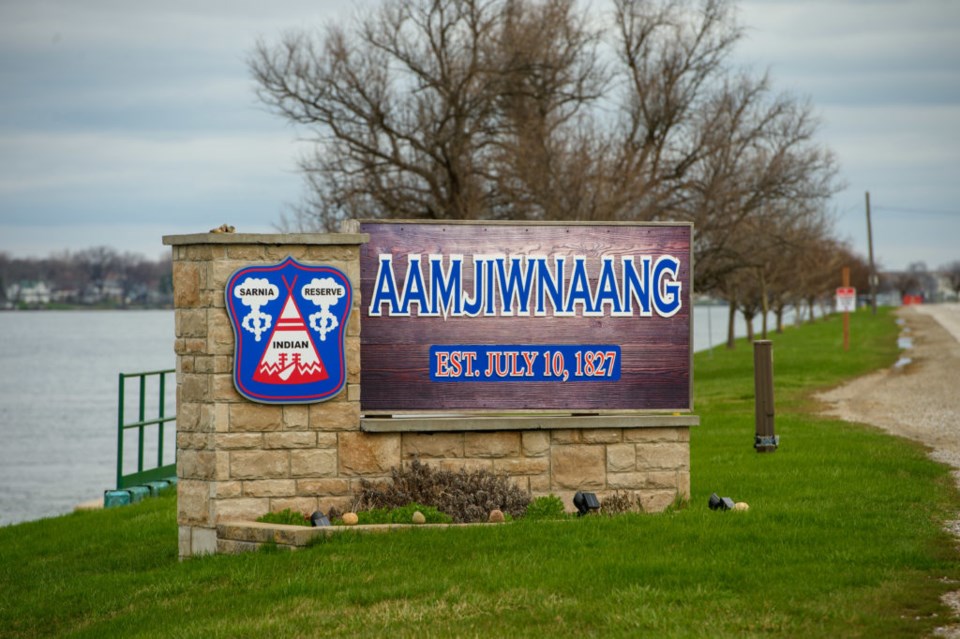Representatives of Aamjiwnaang First Nation are in South Korea this week calling for urgent action to address harmful impacts of plastic production. At the fifth and final round of the United Nations global plastics treaty negotiations, Aamjiwnaang First Nation and other environmental and health justice groups are seeking to implement a global reduction target for plastic.
The proliferation of plastic production and waste is causing an environmental and human health crisis that is felt most acutely by communities such as the Aamjiwnaang First Nation. Earlier this year, the community of Aamjiwnaang was forced to declare a State of Emergency due to dangerous levels of benzene, a cancer-causing chemical used in the production of plastic. It caused many community members to fall ill and sent some to hospital.
“Aamjiwnaang is located in the heart of Chemical Valley, our community is affected every second of every day by these industries,” said Aamjiwnaang Councillor CJ Smith White. “For decades, our community has fallen in between the cracks of regulation. This treaty can be a tool to add to our kit in our journey of environmental stewardship and environmental leadership. We always have spoken about environmental racism and will continue to do so.”
Residents of the Aamjiwnaang face disproportionally high health risks due to industrial emissions, according to the Ontario government’s Sarnia Area Environmental Health Project. The report identifies benzene and particulate matter exposure as a significant concern, linking it to an increased lifetime risk of leukemia and chronic respiratory issues.
Baskat Tuncak, the Special Rapporteur of Toxics and Human Rights for the UN, visited Aamjiwnaang in 2019 and referred to the ”environmental injustice” experienced by the Nation as an ”ongoing tragedy” and a legacy of land use planning that would not be allowed today.
“The situation of the Aamjiwnaang First Nation in Sarnia is profoundly unsettling. Deeply connected with their land, the residents on the reserve have been invaded by Industry.... They are now almost entirely surrounded by over 60 industrial facilities whose presence creates physiological and mental stress among community members because of the risk of impending explosions or other disasters and because of chronic exposure to unquestionably poisonous substances," he explained.
Alongside fellow frontline Indigenous leaders at the UN’s fifth round of the Intergovernmental Negotiating Committee (INC-5) in South Korea, representatives from Aamjiwnaang delivered a powerful message: Indigenous Peoples need to be included as equal partners at the table, and in all efforts to tackle the plastics pollution crisis.
A new survey published by the global movement Break Free from Plastic shows 84 per cent of people across ten countries support cuts to plastic production. Advocacy groups warn that a small number of member states and industry actors will continue to push for weak and non-mandatory measures that will do little to address the urgent crises we all face.
These groups are calling on Canada to show global leadership in reducing plastic production through immediate measures including:
- Supporting a binding global reduction target on the production of primary plastic polymers;
- Upholding commitments to respect Indigenous Rights and Sovereignty;
- Supporting the elimination and reduction of chemicals of concerns to protect human health, human rights and the environment;
- Ensuring transparency throughout the lifecycle of plastics, which includes expanding the Federal Plastics Registry; and
- Ending subsidies to petrochemical production.
